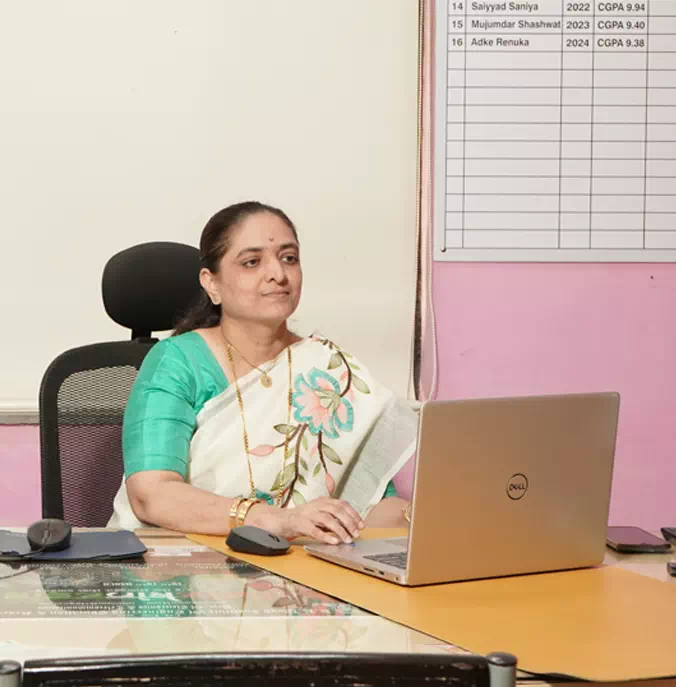
HOD’s Message
The department of Electronics and Telecommunication Engineering (E & TC) was established in the year 1984. This is one of the major departments in the institute, offering two programs which are B Tech (Electronics and Telecommunication) and M Tech (VLSI and Embedded System) with the intake of 120 and 6 respectively. The department also offers Ph. D program. The aim of the department is to provide technical education of the highest standard. The department has always been on a high growth path to keep pace with the ever-increasing importance of the major discipline of study as current technology trends.
The term Electronics and Telecommunication engineering denotes a broad engineering field that covers important subfields such as Analog Electronics, Digital Electronics, Consumer Electronics, Embedded Systems, VLSI Design, Power Electronics, Communication Systems. Electronics-based products play a vital role in our daily lives, from the sophisticated diagnostic equipment used in modern hospitals to leading-edge fibre optic communications. Computer Technology, Telecommunications and Consumer Electronics are advancing at an ever-increasing pace. We offer degree courses teaching state of the art technology, allowing our graduates to work at the forefront of all the major areas of Electronics and Telecommunication engineering.
The department has experienced staff members who are serving the college from last 20 to 30 years. The department has excellent state of the art laboratory setup. It also operates and maintains an Audio-Video hall of capacity 150 and equipped with 200 audio video courses from IITs. The department also has a PCB lab and large number of software tools for students to use.
The faculty is actively participating in various conferences, workshops, seminars, training programs at national and international level. They also present technical papers at national and international conferences frequently, which are also published in reputed journals. DST, Pune University and AICTE have funded the research proposals filed by the department faculty. Sincere and dedicated efforts of our students and staff have transformed into excellent results with University toppers, which has put the department at the forefront in the Pune University. Apart from academic excellence, the department also encourages students to take part in various co-curricular activities.
Our students have received prizes at different national and international competitions. To name the few, Team Matrix, has been selected for the finals of the ISRO Robotics Challenge 2025, Obtained 7th place in ISRO Robotics Challenge 2024, 2nd rank in National Robotex Challenge 2024. Secured First prize in ABB Live Project competition 2024, Secured First prize “RIT Hackathon-2024” organized by RIT, Sangli, First prize in "Tech Fiesta International Hackathon-2024" organized by PICT, Pune. Achieved 2nd world Rank at Technitude International Hackathon organized by S P Jain school of Management, Sydney.
Department also provides guidance related to IPR. Students are encouraged to publish their final year project results. Many students have filed patents under guidance of department faculty members and IPR coordinator. SAEE, Student’s Association of Electronics Engineering, organizes many expert lectures and workshops for students. This organization provides a platform for students to develop organizational skills and to upgrade their technical competence.
The department conducts a National level Technical Symposium 'Telekinesis' annually for the benefit of the students. The students are taken to industrial visits and experts from industries are invited to interact with students regularly to bridge the gap between theory and practice. Many UG students undergo vocational training in industries like Siemens, BOSCH, HAL and BSNL. Workshops on preparation for aptitude tests and interviews for placement in MNCs are conducted for final year students. The students passed out in past two decades from this department have been successfully placed in various private sectors and public sector organizations. TCS, Infosys, Capgemini, Siemens, KPIT, L & T Infotech, Rishabh Instruments, Mahindra and Mahindra, CGL, PSPL, Persistent Systems, Perennial Systems, Fin IQ, TietoEvry, Emerson and BOSCH are our regular recruiters. The department also encourages the students to be entrepreneurs. The department is having very fruitful industry and alumni connect.
Prof. Dr. Sunita A Patil (Wagh)Head of E&TC Department